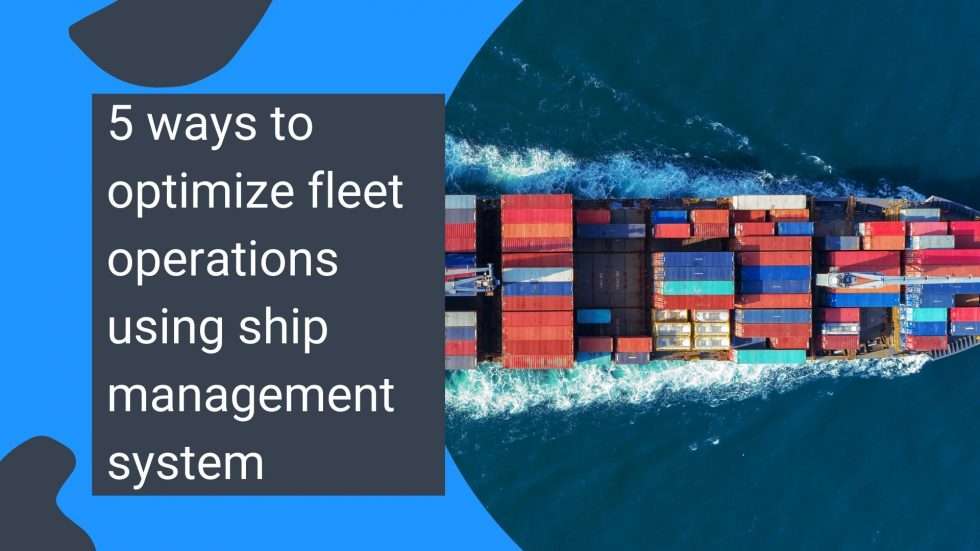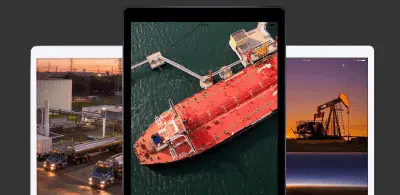5 ways to optimize fleet operations using ship management system - Inatech
- February 9, 2022
- Posted by: Tom Hedge
- Blogs

When it comes to bunkering a vessel the challenge facing any buyer is securing the right amount of fuel at the right price and having it ready at the right time when the ship docks.
Buy too much fuel and you tie up expensive capital. Buy too little and you may have to make a more costly emergency stop at a more expensive port. Pay too much for the fuel and your profits are impacted. Buy the wrong quality of fuel and you could damage the ship’s engine.
Multiply this requirement by 20 or 60 or even larger fleets and suddenly buyers need to find ways to optimize their fleet operations.
Optimize fleet operations by deploying a Ship Management System.
The good news is that there is a solution on the market that makes fleet optimization easier – a Ship Management System.
A Ship Management System consists of a range of integrated software applications that automate the complete fuel management process and provides the tools and data needed to optimize fleet operations. The solution typically provides a single view of purchasing operations and covers a range of functionality including procurement, contract management, inventory, planning and finance, to claims and reconciliation.
How does a Ship Management System optimize your fleet?
1. Accurate planning avoids disruption.
When looking to optimize fuel management across any fleet – planning/ preparation is a vital first step. This is where having access to the right data, the right reports and a mix of dashboards designed for different job functions across an organisation, is so important.
You need your data stored in one central easy to access location. And all users need to be able to access that same data whether accessing it at home or in the office in order to maximize planning success and simplify decision making.
Powerful analytics tools are essential as you’ll want to report on any number of activities. For example, comparing suppliers and contracts, monitoring your fleet’s location, route, fuel consumption, the speed of each ship etc.
Your aim at the planning stage is to build an accurate picture of your fleet, the associated fuel costs, fuel quality and availability at ports so you can carefully plan the exact fuel requirements by individual ship or by the whole fleet.
2. Securing the best fuel deals reduces cost and maintains fuel quality.
Having a clear picture of your fleet, knowing where it’s heading, knowing the fuel being used and how much fuel is still onboard is essential when taking the next step – securing the best deals.
Having immediate access to the purchasing histories of your suppliers can help you build a picture of your best suppliers at each port. Combine that knowledge with market data, fuel prices, port information including types of fuel available at each port and you’re in the perfect position to benchmark suppliers, monitor their performance and use that information with local port data to negotiate the best deals based on price, fuel quality, calorific value and location around the world.
3. Automating fuel procurement drives fleet efficiency.
To streamline operations, free up buyers to focus on other more pressing activities and to help optimize fleet management it is ideal to automate the whole RFQ process. Nowadays sophisticated fuel management software, such as Shiptech, can manage everything from creating a request, to handling multiple supplier negotiations, to placing an order, through to recording test samples, to invoicing and if necessary claims management. Deploying such a Ship Management System simplifies fleet management increasing efficiency and lowering operating costs.
4. Maximizing available cash flow improves business performance.
Optimizing fleet operations requires accurate cash forecasting, cash management, managing counterparty risk and maximizing available capital (credit). Again a suite of comprehensive financial management tools incorporated within a Ship Management System will do the job.
5. Ensure regulatory compliance.
To avoid the potential headaches of operational error and costs associated with regulatory compliance across your fleet you need to set up best practice workflows and a robust auditing systems. A good Ship Management System such as Shiptech, will include these processes as standard.
Shiptech – optimize and transform fleet level fuel procurement.
Shiptech is Inatech’s cloud-based, end-to-end fuel management system. At its core is a comprehensive range of applications covering Procurement, Contracts, Planning, Analytics, Finance, Labs, Claims and Reconciliation.
Using its range of unique decision support tools, dashboards, alerts and business intelligence you can address all the issues highlighted above and optimize fleet level procurement, transform fuel management and build the competitive edge needed to operate effectively in today’s marketplace.
To find out how Shiptech can optimize your fleet operations book a demo here.


